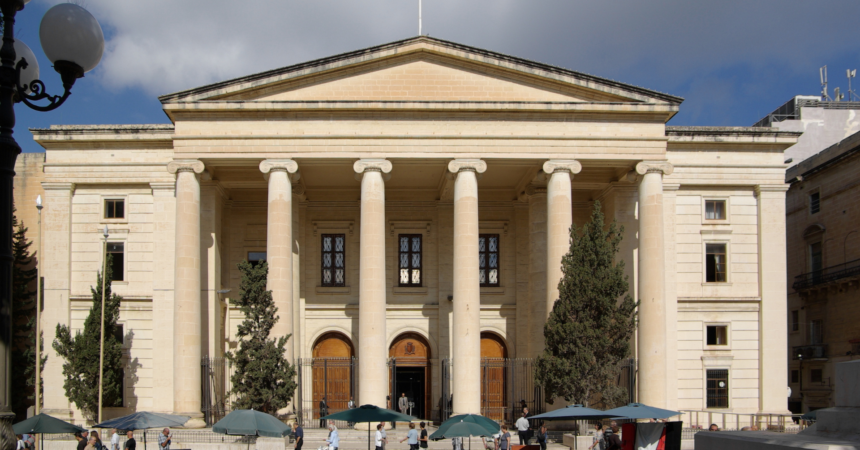The Attorney General’s request for the Criminal Court to take action against lawyer and former MP Jason Azzopardi has been refused by the court.
The AG’s request followed a complaint received from the lawyers of Yorgen Fenech, who stands charged before Madam Justice Edwina Grima with masterminding the assassination of journalist Daphne Caruana Galizia.
The lawyers sought to claim on Fenech’s behalf that the chats’ publication violated their client’s right to a fair hearing and his right to private life.
The source of Fenech’s complaint was a newspaper column written by Saviour Balzan and published in MaltaToday on 15 May.
Judge Grima ruled on the AG’s request and held that the WhatsApp chats extracted from Yorgen Fenech’s mobile phone were not such that would properly be protected by law, contrary to the AG’s assertion. The court would not, therefore, take any action against them being published.
In the article on which the AG’s request was ultimately based, Saviour Balzan had claimed that he was facing “constant rumour-mongering, and recently, a blackmail of sorts about WhatsApp chats [extracted from Fenech’s phone] being published” while blaming Jason Azzopardi.
Balzan wrote how he had reported “the leak of Jason Azzopardi” to the police and provided “hard and irrefutable evidence of Azzopardi passing on privileged information (chats) to third parties”.
Fenech’s lawyers were quick to pick up on the article and wrote to Attorney General Victoria Buttigieg on 31 May.
They claimed Azzopardi threatened to publish extracts of the chats “in violation of a court order” and because “the case in question is still before the criminal court of appeal”.
Fenech’s lawyers seized upon Balzan’s article and asserted that the WhatsApp chats had been extracted from Fenech’s phone and presented as evidence in the case against their client.
They added that the “uncontrolled sharing of documents has persisted from the beginning of proceedings to today”. They described Azzopardi as having undertaken “consistent actions in disseminating documents that have been sealed by court order”.
In her application before Judge Grima following receipt of the communication from Fenech’s lawyers, the AG claimed that the WhatsApp chats in question fall under Article 517 (3) of the Criminal Code and asked for appropriate action to be taken by the court to prevent their publication.
By invoking Article 517 (3) of the Criminal Code, Fenech’s lawyers sought to have Azzopardi arrested or summoned for contempt of court.
That provision says that if the Attorney General or the Police “become aware of the publication of any writing in contravention of this article, they shall inform the court by which the order of prohibition was made and shall carry out such directions as the court shall give, orally or in writing, for proceedings to be taken before the court against the offender, either by summons or by arrest”.
Broadly speaking, Article 517 addresses documents that have had their publication banned by the court and stipulates that anyone found guilty of violating such a ban would be guilty of contempt of the court’s authority.
Judge Grima, however, dismissed the request outright in a decree she gave the very next day.
She ruled, without delving into the specific rationale behind the decree, that the WhatsApp chats “do not qualify as a publication which the law speaks of in Article 517 of the Criminal Code, [and] it is considered that no steps can be taken based on the said provision of the law by the Court”.
The ruling has broader implications than would appear to be the case at first glance.
In March, author Mark Camilleri published around 2,200 WhatsApp messages between Fenech and former Labour MP Rosianne Cutajar, many of an intimate nature but others that lifted the lid on widespread political graft, corruption and sleaze.
Cutajar’s lawyers at the time demanded the AG request an investigation into the leaks, which was accepted.
The police confirmed the messages formed part of evidence filed before Judge Grima in criminal proceedings against Fenech and that they were subject to a November 2021 ban on their publication.
Camilleri was facing the prospect of imprisonment of up to one month and a fine of up to €4,000 if found guilty.
It now appears that Camilleri will be able to argue that he has been let off the hook by Judge Grima’s ruling. It can be argued that since the substance of the AG’s failed application is inherently identical to the rationale underlying his prosecution, there is no reason to find any criminal liability in his regard.
In a wider sense, it is becoming even more apparent that the publication of such WhatsApp messages that do not impact the criminal case against Yorgen Fenech should no longer be considered a “no go” area.
The ban, as interpreted by some, can only be seen, especially in the light of Judge Grima’s ruling, as being excessively restrictive on the fundamental right to information that is in the public interest.
From what has already been exposed, and from what many media operators know but to date have been reluctant to publish, there is much in the WhatsApp chats that have nothing to do with the Fenech case but which demands to be published in the public interest.














Finally another ruling from a judge with balls, one which also makes a mockery of the Mega Puppet Victoria…..